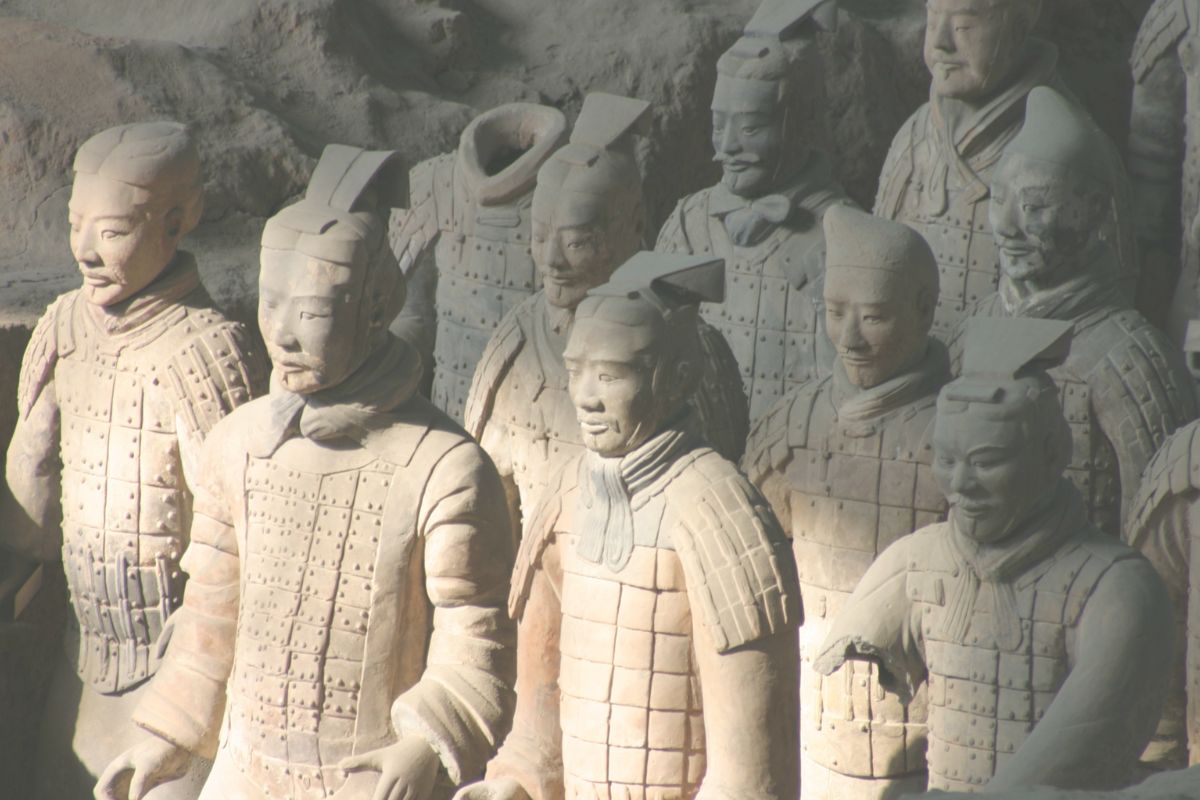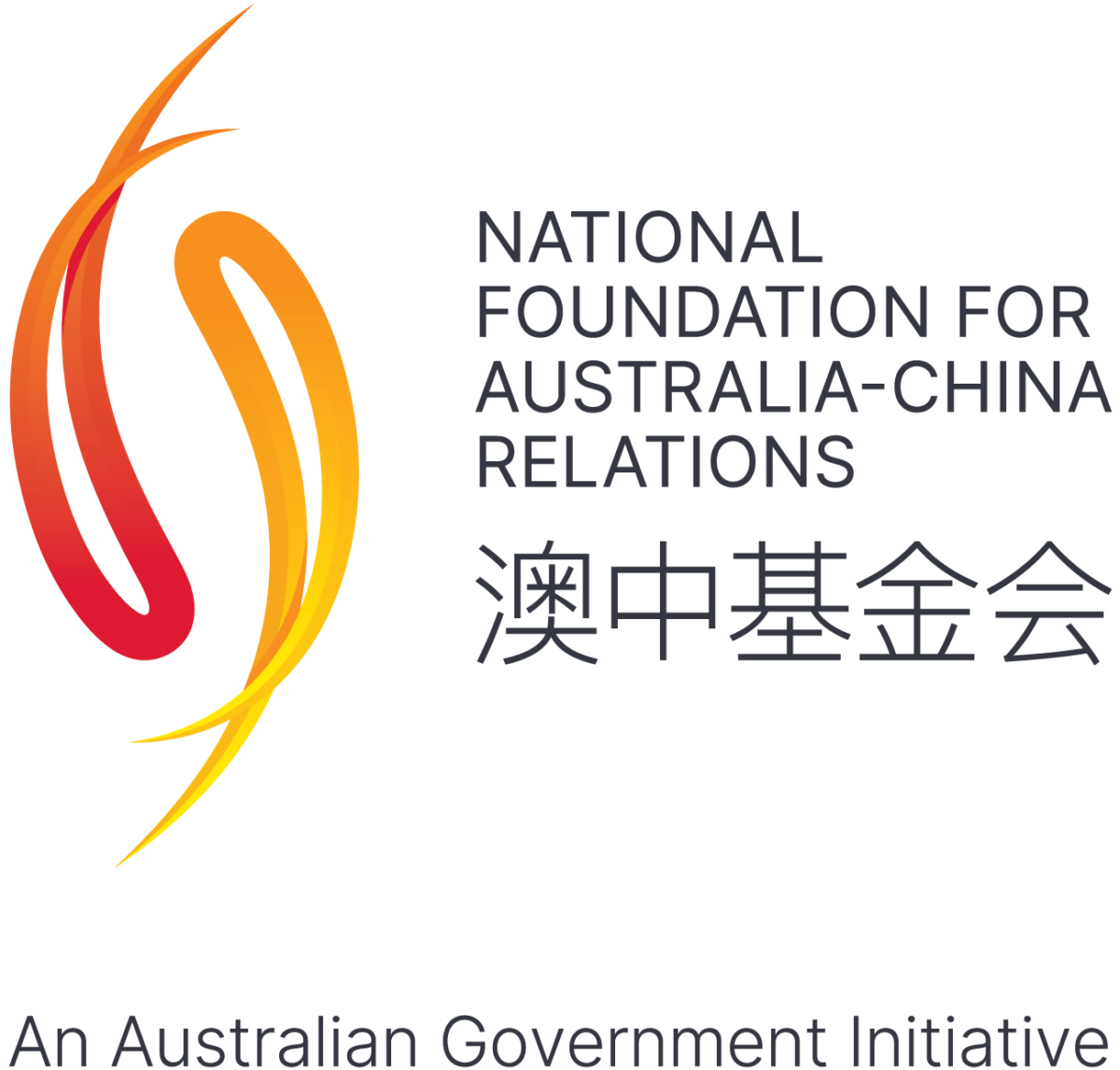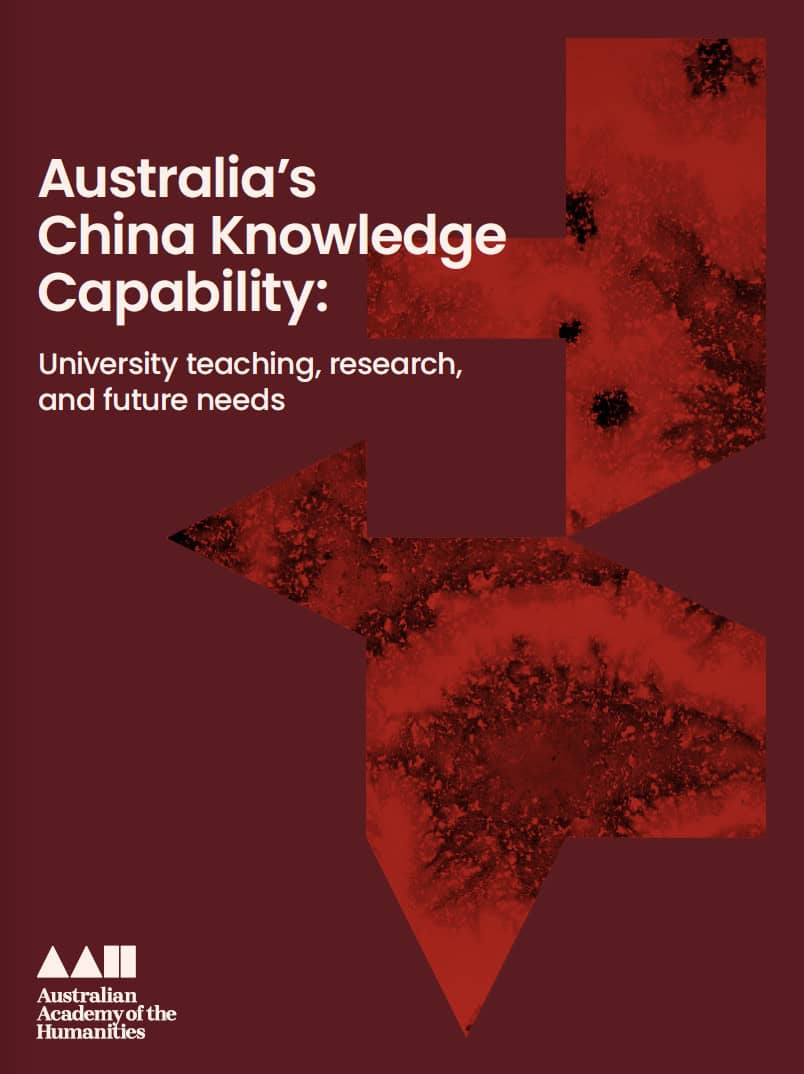Australia’s China Knowledge Capability
How Australia can best support its national interests by getting to know China better.
Since the sustained national effort to build China capability in the 1980s and 1990s, our universities have changed, as has our region. We need a new agenda for building a sovereign China knowledge capability of the kind required for our national interests now and as they evolve into the future.
Our Australia’s China Knowledge Capability report was developed as a resource for those with a stake in the China relationship across the university, government, corporate, and community sectors – to consider how Australia can best develop a long-term capability which adapts and adjusts with the changes in both Australia and China over coming decades.
We depend on Australian universities to:
- teach Australians about China, and train China experts
- conduct research to ensure we understand China, on
Chinese terms and on ours - help to make China knowledge available as national capability.
Our report addresses the capacity of Australia’s universities to meet these needs.
The Australia’s China Knowledge Capability research project was funded by a grant from the National Foundation for Australia-China Relations – an Australian government initiative, established in 2020, to strengthen understanding and engagement between Australia and China.
Key findings
Australia has distinctive interests in relations with China which require a sovereign China knowledge capability, balancing security, politics, economics, and relationship-building.
Australia’s universities generate prolific, diverse knowledge about China – this is a success story. However, there are serious questions around our ability to generate core capability for stakeholders: direct knowledge of China, informed by world-class understanding of how China operates, and engaged with Australia’s national interests.
Stakeholders in government and universities see benefit in a greater degree of national coordination in teaching, research, and the translation of research into government and industry.
What is China knowledge capability?
Australia’s China capability is not just the sum of what we know about China; it’s our ability to deploy our knowledge to achieve Australian objectives. There are three types of China knowledge capability generated in our universities:
Foundational knowledge capability
Foundational China knowledge is a basic understanding of Chinese politics and government, and China’s place in regional and global dynamics in security, trade, culture, human rights. As taught in our universities by teachers who are also researchers, foundational knowledge emerges from a wide, deep, and progressive base of specialised knowledge.
Foundational knowledge of the history, politics, culture and economies of Asia and China can:
- raise the bar for Australian debate and politics
- ready Australians for opportunities in our region, and
- lay the groundwork for collaboration across research disciplines and sectors (universities, government, industry, wider society).
Foundational knowledge need not involve learning Chinese language, but a basic (or better) level of Chinese language ability enhances foundational capability.
Specialised knowledge capability
Specialised China knowledge is expertise on China within a specific field of knowledge such as economics, art, media and communications, health and medicine, law, or international relations. A wide range of disciplines in our universities conduct research about China. As befits the creation of new knowledge, it is typically detailed, specific and explicit about its methodology and theoretical underpinnings. It can be applied in multidisciplinary settings to clarify and solve problems.
Our China specialists can interpret and explain Chinese society, culture and politics in ways that correct and extend Australian perspectives. Some of our most important questions about the People’s Republic of China (PRC) require insight into the opaque working of political elites. For Australia, insight into the politics of specific sectors such as resources, finance or health and medicine, in particular provinces, may be critical. A sovereign capability of this kind requires specialised training in language, documents, history, and politics, as well as contextual knowledge.
Increasingly, Australia’s China capability benefits from scholars and other thought leaders who have applied their expertise to China but are not themselves China specialists. Even more important is the extent to which China specialists inform the assumptions about China made by these affiliated thinkers and decision makers.
Core knowledge capability
Core China knowledge capability includes knowledge content, but also experience, relations and attitudes that exist or should exist between the various players in Australia’s relations with China, as well as between Australia and China.
It comprises Australians with:
- mastery of Chinese language, along with advanced training in culture, politics, and history, to hold our own in bilateral relations, to advance our understanding of China and skill in engaging China, and to keep up with international knowledge creation and innovation
- experience living and working in China, essential to keep people in touch with China’s scale, speed, and inventiveness, and to inoculate them against bias or oversimplification
- the ability to ‘join the dots’ and translate knowledge held in Australia’s universities through to Australian policy-making and industry application.
By “core capability”, then, we mean knowledge that is direct, so that Australia has its own expertise that is:
- grounded in relationships in China
- universalist (so that it benefits from the standards of evidence and accountability of international scholarship)
- engaged with Australia’s interests, and
- integrative, in that it serves a common Australian purpose of better understanding China, and how to engage China.
Why do we need China-specific knowledge?
Almost one in five people on the planet live in the People’s Republic of China (PRC). Chinese civilisation has had a major influence on the histories and cultures of Australia’s region, and of multicultural Australia. China is now a powerful global player.
Australia’s relations with the PRC have “come under strain” in recent years. Foreign Minister Penny Wong talks of “a long road on which many steps will have to be taken by both parties to a more stable relationship.”
Even so, China remains Australia’s largest trade partner. Other developed economies compete with China; Australia has compelling economic complementarity. China is Australia’s largest trading partner, worth more than the next three partners (Japan, the United States, and the Republic of Korea) combined.
Having a sovereign China knowledge capability, that balances security, politics, economics, and relationship-building, is critical to ensuring that challenges and opportunities are understood with Australia’s distinctive interests in view.
A history of developing capability
... deep knowledge of a country reduces the risk of strategic miscalculation – a real danger in an increasingly volatile world. When one nation has the capacity to really understand the workings of another’s political system, the chances of an escalating cycle of misunderstood signals and misconceived responses diminishes. What’s more, we can convey our concerns in ways most likely to register and least likely to offend.
Her Excellency the Honourable Frances Adamson AC, Governor of South Australia Tweet
Australia has a decades-long history of developing and investing in China knowledge capability – namely in the 70s, 80s and 90s – however there is evidence that it hit its peak in 2002.
The development of Australia’s China knowledge capability
The agreement between Australia and the PRC to support student exchange programs was one of the first fruits of official diplomatic relations
Sixteen Council members, comprising historians, scientists, senior arts administrators, and business leaders, sought to augment Australian expertise to develop and manage the relationship with China
30 long-term Australian advisors and their families lived across the PRC, students took placements in China and governments and universities worked together to make Australia a global leader in Asian studies
The Minister for Education, Senator Susan Ryan, visited the PRC and oversaw the investment of $1 million annually to build the bilateral education relationship
Chinese, Japanese and Indonesian language study was funded in secondary schools, creating a demand for university-level language programs
Asia-focused language and area studies degree programs flourished. Researchers across a wider range of disciplines started to focus on China
Young Australian China scholars come to maturity. At this point Australia’s China capability was still modest in size but confident and growing with a relatively high degree of integration between schools, universities, business, and government
The decline of the shared capability agenda
Other nations aggressively caught up to Australia's strong position in Asian studies by headhunting Australian talent. Australians’ enthusiasm for Asia knowledge had flagged, in particular after the 1997 Asian Financial Crisis
The Howard Government ceased funding Asian languages in schools, citing this as a responsibility of state governments. A Senate Inquiry into Relations with China found that Australia’s capacity to improve China literacy at all levels of education was declining
The shift away from a development relationship reduced the pool of Australians who had insight into both government and community perspectives
China’s demand for Australian resources did not stimulate wider investment in specialist China skills. In contrast, the US, Germany, and France have significant manufacturing investments in China that require China competency and highly skilled personnel to manage operations
Education & training capability

Our universities once provided small-scale, world-class training in core China knowledge advanced Chinese language, applied and broadened through advanced study in a discipline that provided context and critical thinking, as well as opportunity for travel and study in China.
But, our research has found critical gaps and serious signs of decline, including:
- Honours in China studies – which once trained Australians in advanced Chinese language and China studies – is offered by fewer universities now. Out of the 14 strong providers in China studies that we consulted, only seven of them offer Honours. Together, six of them graduated only 17 Australians with Honours between 2017 and 2021, no more than five in any one year.
- The number of universities providing comprehensive training and degree pathways to undergraduates is decreasing.
- A trend away from China-focused subjects to more general subjects, such as international relations, means that students will not get a foundational grounding on China.
- China studies programs are showing evidence of declining offerings and enrolments.
- It’s not possible to determine from publicly available data the numbers of students in China-focused courses – this is a major constraint in tracking capability strengths and gaps.
“It would take a young person of exceptional determination, skill, and foresight to build for themselves a degree that offered a rounded study of China.”
Dr Mark Strange, Australian National University Tweet
The need for a national approach
There is an urgent need for a new conversation about building an Australian China studies profession. We have many of the ingredients to produce the China knowledge capability Australia needs, but we will be unable to reverse the decline in sovereign capability until there is a concerted effort to improve incentives for students and to support teachers to deliver the course combinations that produce core capability.
“China studies in Australia is a challenging field. We need to join forces at the national level. Not every Australian university has the economy of scale in China studies. Therefore, a national approach would help.”
Dr Yu Tao, University of Western Australia Tweet
There is an argument for a university-led national overview of course provision to share successes, explore possible synergies, and to monitor the needs and opportunities for collaboration. It should include business, industry, and government. Building national capability is a whole-of-nation endeavour. Teaching it as such will help to attract and retain the best and brightest.
Research capability

Australia’s research about China is prolific & growing
- Australia produces the fourth-highest volume of English-language research about China after the People’s Republic of China, the US, and the UK.
- Australians published 27,000 research papers on China since 2010 (representing two per cent of all Australian research output), across 178 fields.
- The top fields of publication are diverse:
- In the sciences: public health and health services, geology, clinical sciences, medical and health services, geochemistry, biological sciences.
- In the social sciences: business, and management, applied economics,
psychology, marketing, policy and administration, banking, finance and
investment, political science.
It also revealed:
- a growing concentration of research into social media discourse in the PRC; and into the diverse experiences of Chinese Australians.
- that in 2020 China became Australia’s largest publishing partner, overtaking the US.
Problems with the capability pipeline
Despite our strength in research, we found indications of a decline in advanced China teaching in our universities which is the pathway to higher degrees by research. The trend is running in the wrong direction, posing a risk to Australia’s research workforce renewal.
Funding Australia’s China knowledge research is declining
The absence of national coordination
Given the cumulative investment in China knowledge at individual researcher, field and institutional levels, the absence of a strategic focus on China is striking.
Australia has not approached China research as a domain for coordinated problem-solving or as a focus for strategic capability. There’s no national coordination to guide Australia’s thinking, build on our strengths, or identify our capability deficits in knowing China.
We have not brought together expertise located in different universities on the various factors that should be considered together as context for our China policy.

Why Australia needs to brush up on Chinese history
China expert Professor John Fitzgerald FAHA explains how deep knowledge of China's history can help Australia pursue its national interests more successfully.
Translation capability

A valuable meeting point for Australia’s knowledge sectors is their shared interests in China
However, our consultations revealed limitations in the translation of universities’ knowledge about China into ready, deployable capability. There was an appetite for greater provision of, and mechanisms for expert information and advice to government.
This translation challenge is relevant across all categories of knowledge:
- Core knowledge capability helps Ministers and officials ask the right questions and avoid errors as events unfold.
- Specialised knowledge can radically improve our understanding of the sectors of China that are most important to Australia.
- Australians graduating with foundational knowledge take that capability into all walks of life. Teaching foundational knowledge also provides an opportunity for scholars to raise the bar for the wider Australian conversation on China.
China knowledge spans Government, industry and universities
Universities don’t have a monopoly on China knowledge capability. DFAT, Defence, the intelligence community and other Commonwealth and state and territory agencies build deep capability in Greater China, and contextualise it globally in conjunction with partner governments.
Australia has pockets of deep business experience in China. Australian journalists – who had access to the PRC until 2020 – have made a major contribution to the public debate. But universities have a central part in building capability, including through their interest in their students’ employment options and prospects.
Our consultations revealed:
- There is limited uptake of universities’ China research by government and industry. An exception is research on China-related economic issues. Following 40 years of continuous collaboration with the PRC, with well-placed Australian leadership, this research does inform policy.
- Limitations in the translation of universities’ knowledge about China into ready, deployable capability. China-focused people in universities, government and industry all called for better provision of, and mechanisms for, expert information and advice to the Commonwealth Government.
Public dialogue informed by expertise
Scholars and businesspeople said that our public conversation on China needed to give greater prominence to expert China knowledge.
They also shared widespread frustration that many of Australia’s most China-capable young people are not developing their knowledge, and keeping it current, in China-relevant roles.
While a heightened focus on national security risks underlines the importance of understanding the PRC, the emphasis in public discourse on security concerns was cited as a factor in dissuading some students, early career researchers and young professionals from further developing their China knowledge and expertise for the Australian workforce.
This exacerbates the concern that expertise is undervalued in Australia’s China conversation
"If experts, particularly young experts, feel uncomfortable voicing their opinions publicly, we will stagnate in the areas this report identifies as most urgently requiring improvement."
Her Excellency the Honourable Frances Adamson AC, Governor of South Australia Tweet
Recognising the skills of Chinese Australians
Lowy Institute research indicates that too few Chinese Australians are entering and succeeding in the Australian Public Service (APS).
Lack of formal language training can be a hindrance for Mandarin-fluent Chinese Australians in the APS. There is a perception that people with formal Chinese language training, but basic language ability, are being hired over Chinese Australians who read and speak Chinese fluently but lack formal language qualifications.
Senior Commonwealth Government officials we spoke to recognised that officers need cultural understanding; and that to include more Chinese Australians in central agencies, the APS needs to turn the current hiring situation into a virtuous cycle of informed decision-making.

Why we need to take responsibility for our China knowledge capability
Peter Varghese AO FAHA and Prof Joseph Lo Bianco reflect on how Australia's knowledge of our geographic region is thin, and the issues this presents.
Where to from here?
We have seen that sustained research collaboration on topics that matter to government builds core China capability. Since the peak of our wider China knowledge capability, our universities have changed, as has our relationship with the PRC, and our geopolitical situation.
We need a new agenda to bring together Australia’s various interests in knowing China, and effectively deploying that knowledge.
The stakeholders we consulted for this project – across universities, government, and business – saw a need for nationwide action to address the decline in our core China knowledge capability. China knowledge capability is one of the keys to successful implementation of any China strategy.
A China knowledge framework that makes sense in universities, industry and governments will need to encompass security, politics, economics and relationship-building that rests on deep cultural knowledge.
Scholarship stands out as one of the most resilient channels in bilateral relations. Academic work can prepare the ground for successful future collaboration: for understanding how to identify the right time, province, and level of government at which to engage.
Consolidating strengths
Australia’s research output is our outstanding strength in China knowledge. Developing a sovereign China knowledge capability depends on strengthening existing university programs, particularly regarding the provision of advanced Chinese knowledge at Honours and postgraduate levels.
We will also need to continue to attract and deploy highly capable, highly qualified academics with backgrounds in Chinese-speaking countries to research and teach on China in Australia.
Addressing needs
In response to the gaps we’ve found in our capability, we suggest four possible areas of action to help characterise the problem and to help shape an agenda that decision-makers can use to work out the most prospective solutions.
The real work will need to emerge from conversations within universities, between universities, and between universities, government, industry, and the wider community.
Culture & language
We are fortunate to have many Australians who speak Chinese at home. If we are to know China better, university and other leaders should work together on ways to invite and equip more of these Australians to inform policy and opinion on China.
Generating core capability
At present, there are few incentives to excel in Australian China studies. As a nation, we need to establish scholarships, work-integrated learning and research into issues that are most important to Australia.
Time in China
To build our knowledge, we need more Australians to spend time in China. This might look like collaboration between industry, universities and government to support young people, to incentivising programs that encourage Commonwealth decision-makers to travel to China.
Harnessing knowledge for national purposes
We will be thinking carefully about China for many years to come. We must work as a nation to coordinate our China knowledge across universities, industry and government to identify opportunities and solve problems at the national level.
About the report
This report was written by Dr Jon Lane, Dr Kylie Brass, Ms Ciara Morris and Dr Christina Parolin.
The research data collection and analysis drawn on in this report was undertaken by Dr Tim Cahill of Research Strategies Australia.
The project was guided by an Advisory Group with extensive and diverse experience across China, Higher Education, research, government, business, community relations and the health sector, chaired by the Academy’s International Secretary, and former President, Professor Joe Lo Bianco AM FAHA.

The artist behind the artwork
In bringing this report to life we chose to feature artworks from prominent and celebrated artist Lindy Lee FAHA. Lee’s practice explores her Chinese ancestry through Taoism and Ch’an (Zen) Buddhism – philosophies that see humanity and nature as inextricably linked.
Advisory Group
Joe is Professor Emeritus at the university of Melbourne. In 2012 he was appointed Research Director of the UNICEF Language and Peacebuilding initiative in Malaysia, Myanmar, and Thailand. He has served as senior research advisor for a European Commission project on Languages in Urban Communities and in an academic advisory role with the National Research Centre for Foreign Language Education at Beijing Foreign Studies University. Joe wrote Australia’s National Policy on Languages in 1987. He was Chief Executive of the National Languages and Literacy Institute of Australia until 2002.
Louise publishes on women and gender in China and Asia. In 2015 and 2016, Louise served as President of the Asian Studies Association of Australia. Louise was Scientia Professor of Chinese History, University of New South Wales, and has taught at The University of Hong Kong, University of Technology Sydney, Australian National University, Australian Catholic University and the University of Queensland. She held a visiting fellowship at the Centre for Chinese Studies at the National Central Library in Taipei. She currently holds Honorary Professorships at Hong Kong University, UTS-ACRI, and University of Melbourne.
John headed the Asia-Pacific philanthropy studies program at Swinburne University after serving as China Representative of The Ford Foundation in Beijing from 2008-2013. He currently sits on the advisory board of the Australian government’s National Foundation for Australia-China Relations and as a non-resident fellow of the Australian Strategic Policy Institute. His recent books include Cadre Country: How China became the Chinese Communist Party (2022) and (ed.) Taking the Low Road: China’s Influence in Australian States and Territories (2022). He has a Ph.D. from ANU and held a Fulbright postdoctoral fellowship at the University of Wisconsin-Madison.
Kevin was one of a small group of international lawyers to work in Beijing in the early 1980s. As an international law firm partner for 18 years, he had postings in Beijing, San Francisco, Taipei and Sydney. Kevin was the Deputy Chairman of the Australian government’s Australia-China Council, serving from 2007 to 2013, and Chairman of the Australia China Business Council from 2005 to 2008. He is the Chair of the Advisory Board of the China Studies Centre of Sydney University. He is the Chair of the not-for-profit Foundation for Australian Studies in China.
Vivian has more than 40 years of experience in public health, with leading roles in health services planning, research and teaching, and senior administration in complex organisations. Vivian was Chair of Public Health from 2000 to 2013 at La Trobe University in Melbourne, before serving the WHO as Director of Health Systems in the Western Pacific Regional Office from 2013 to 2018. Vivian has also worked at senior executive level in health policy in several Australian jurisdictions. She is the author of several leading textbooks in Australia on health policy and planning, as well as on China.
Trained as a sinologist at the Australian National University, Anne has thirty years’ experience in teaching Chinese language, culture and literature in Australian higher education. She is internationally known for her research into the relationship between Chinese oral and print culture in the late imperial era. She served as Research Fellow at the Center for Intangible Cultural Heritage at East China Normal University, Shanghai. Anne has served as secretary for the Chinese Studies Association of Australia, and has reported regularly on language studies enrolments around the country since 2003.
Prior to his appointment as Chancellor in 2016, Peter served as Secretary of the Department of Foreign Affairs and Trade, High Commissioner to India, High Commissioner to Malaysia and Director-General of the Office of National Assessments. His comprehensive India Economic Strategy to 2035 was commissioned by the Australian Prime Minister. Peter is chair of the Asialink Council and sits on the international governing board of the Rajaratnam School of International Studies in Singapore. He was awarded the Sir Edward “Weary” Dunlop Asialink Medal in 2019 in recognition of outstanding contributions to improving Australia-Asia relations.
Before entering Parliament, Jason had a career in law, business and community advocacy, particularly for diversity and inclusion. Jason was appointed General Manager, Sales and Marketing for IAG’s operations in China in 2004. He is a Pro-Chancellor of the University of Sydney, a member of the University’s Senate, and Chair of the Risk and Audit Committee. He has been a non-executive director of the George Institute for Global Health, AsiaLink, the National Centre for Volunteering, and a governing member of the Smith Family.
The Australia’s China Knowledge Capability research project was funded by a grant from the National Foundation for Australia-China Relations – an Australian government initiative, established in 2020, to strengthen understanding and engagement between Australia and China.


